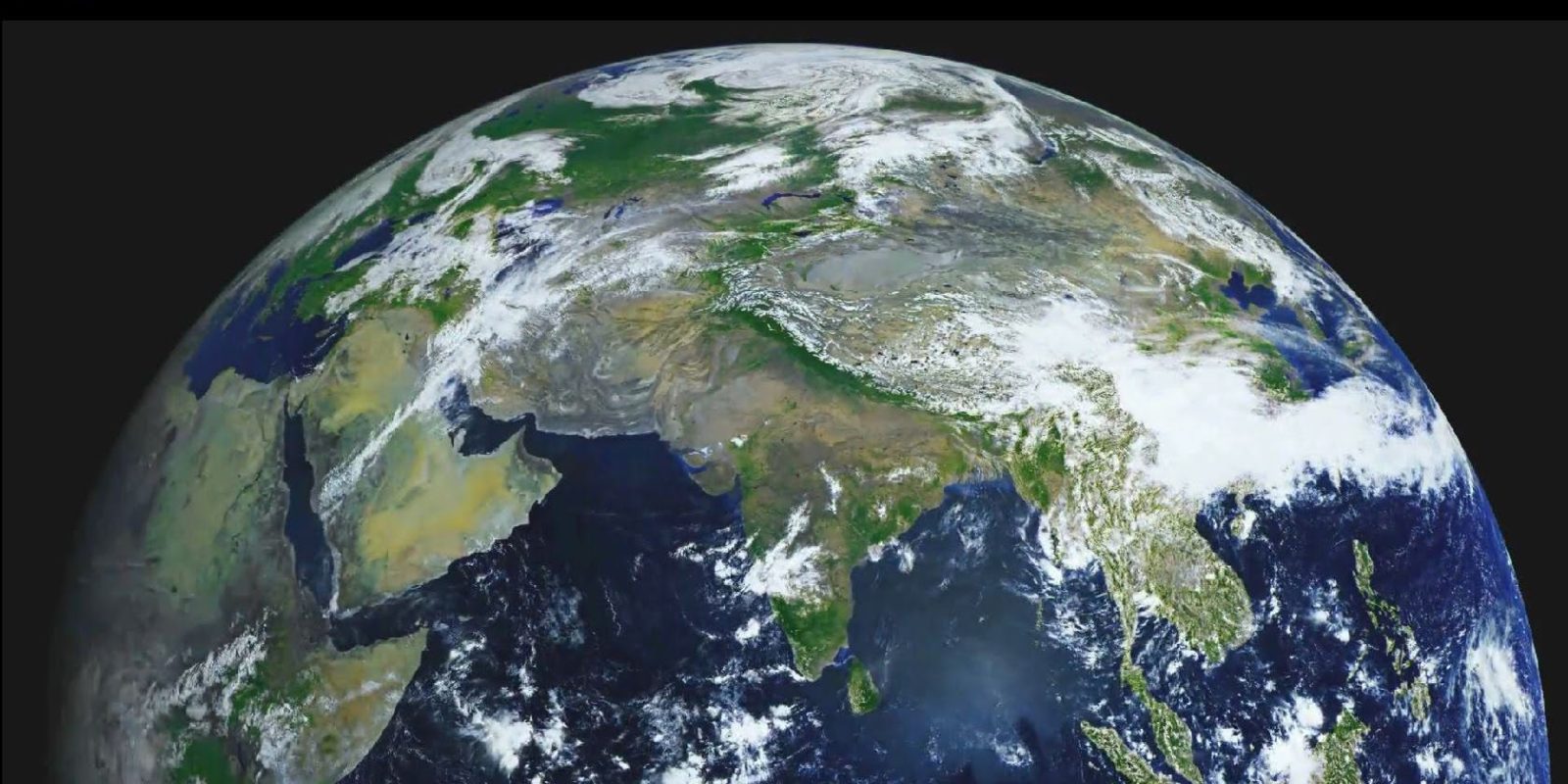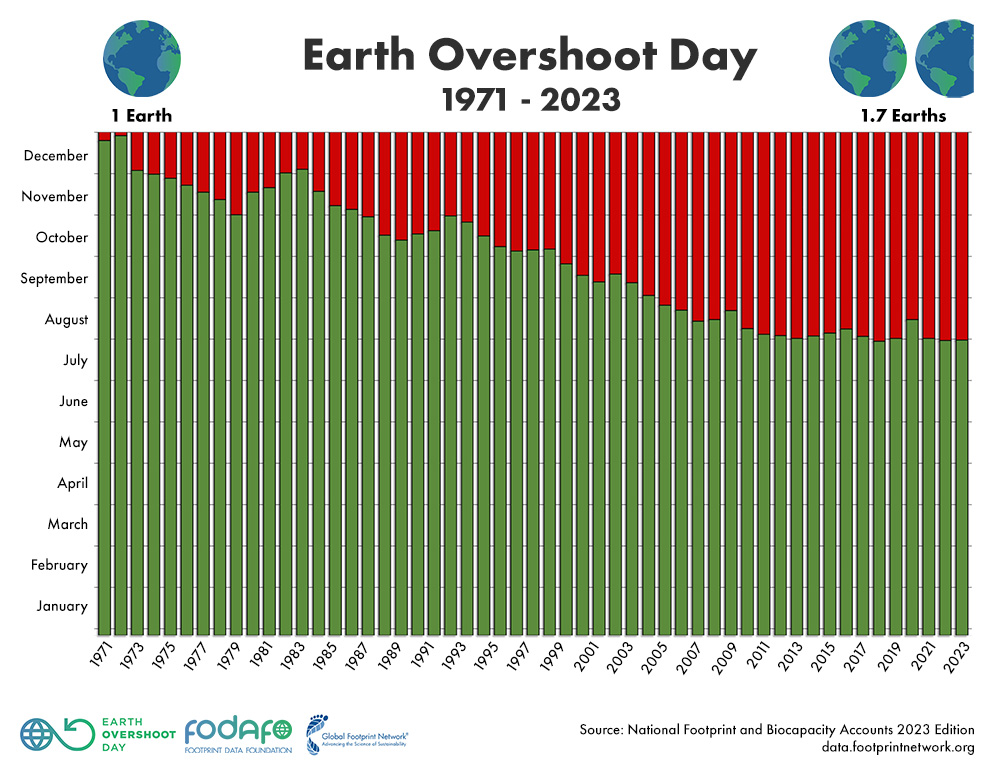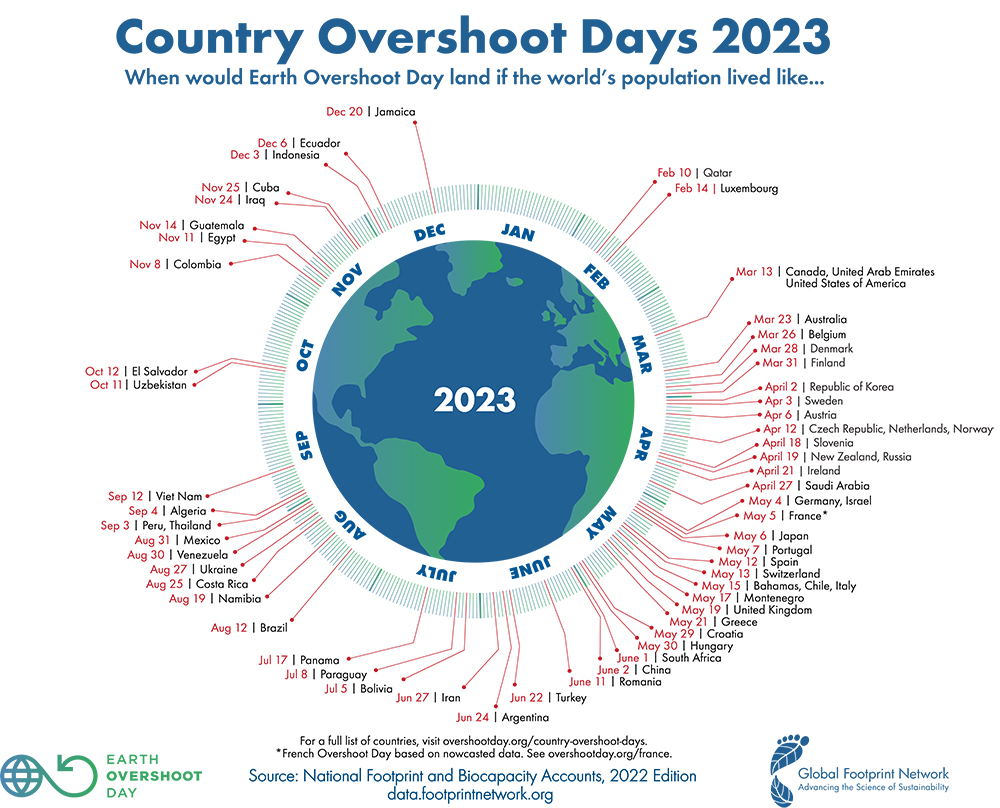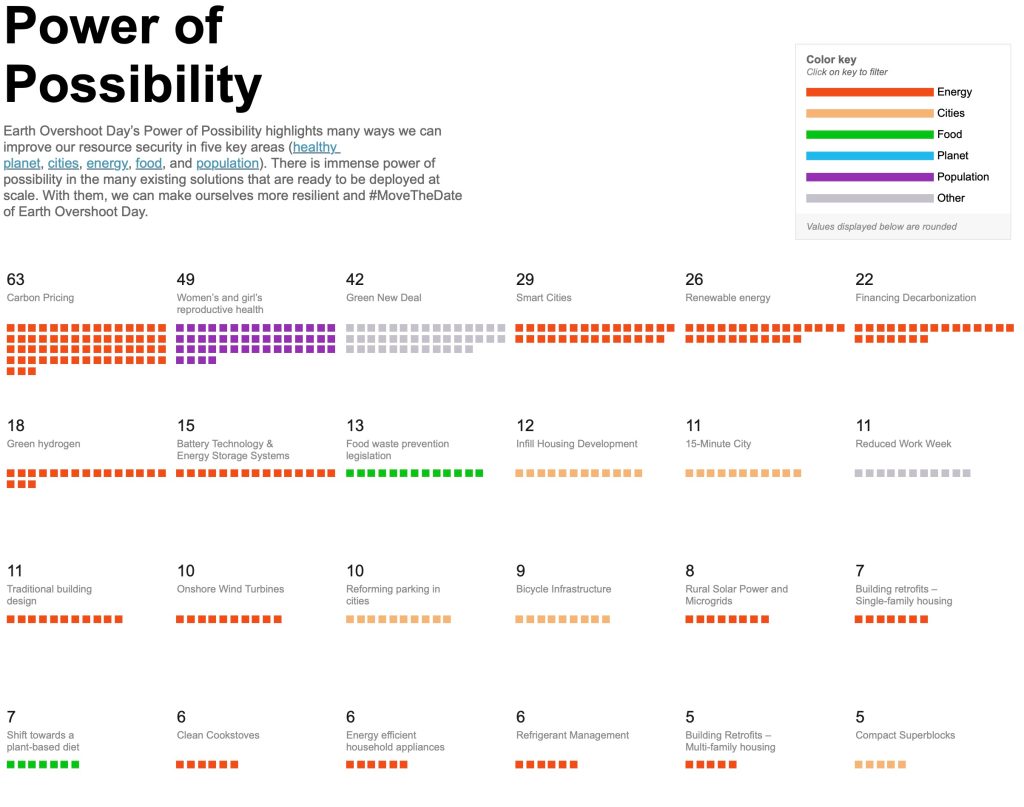
The globe marked “Earth Overshoot Day” on August 2nd, calculated as the day when humanity has used up more than the total amount of resources made available by the Earth over the course of the year. And the day has been getting earlier and earlier every year.
Earth Overshoot Day is a calculation which defines the total amount of ecological services available from natural processes, then compares that to how quickly humanity uses up those processes.
These services include clean air and water, forest products, fertile soil, pollination, fisheries, land use and so on.
But humanity, since the 1970s, has not been content simply to use up the services available to us, but rather to overuse them – thus creating longterm effects that result in fewer of the same resources being available in the future, compounding these problems.

This overuse can take several forms. Consider deforestation, overfished oceans, overused cropland leading to desertification, inefficient land use from suburban sprawl, and concentration of carbon and other forms of pollution in the atmosphere in excess of nature’s ability to remove them.
And as humanity has become more populous, and as people demand more resources, this only compounds the problem. We must become less wasteful and use less resources, but we’re only going in the opposite direction.

Not every country is overshooting its capacity, though. While most of us are, we in advanced countries are pulling far more than our weight in terms of overused resources. If the whole world were to use resources at the rate of the US, we would overshoot Earth’s available resources on March 13th – with Qatar and Luxembourg being the only two countries more wasteful than the world’s largest historical polluter.
You can see each country’s ecological deficit here, or can see individual country trends over time here.
The Earth Overshoot Day organization maintains a list of solutions ranked by their potential effectiveness, measured by how many days each solution could push back Earth overshoot day in the year. The top ideas aren’t particularly surprising, save perhaps one:

Putting a price on carbon pollution (which we’ve written about before) would be the biggest improvement, since carbon pollution represents humanity’s largest impact on the ecosystem resources we have available to us. Other clear solutions like a Green New Deal, smart cities, renewable energy and directing finance towards decarbonization are obvious and necessary ones that everyone knows we need to tackle.
But the #2 solution, reproductive health for women and girls, sticks out. It may sound strange as an environmental solution, but educating girls has long been known to be the most effective way to lower birth rates in the developing world, which helps reduce overpopulation.
Many of the proposed solutions, like plant-based diets and renewable energy (via home solar) can and should be implemented by individuals on a small scale, but Earth Overshoot Day points out that:
Individuals have the power to better their homes and communities. The greatest potential for large-scale impact, however, lies with governments and businesses who align their policies and strategies with the reality of our finite planet.
But those solutions still require individuals, who must support policies or representatives who will put environmental protection first, support businesses who do the same, and make sure that their own workplaces are putting effort into these solutions. We can only solve these problems with active participation by everybody, because if everyone just waits for someone else to solve the problem, then the problem doesn’t ever get solved.
